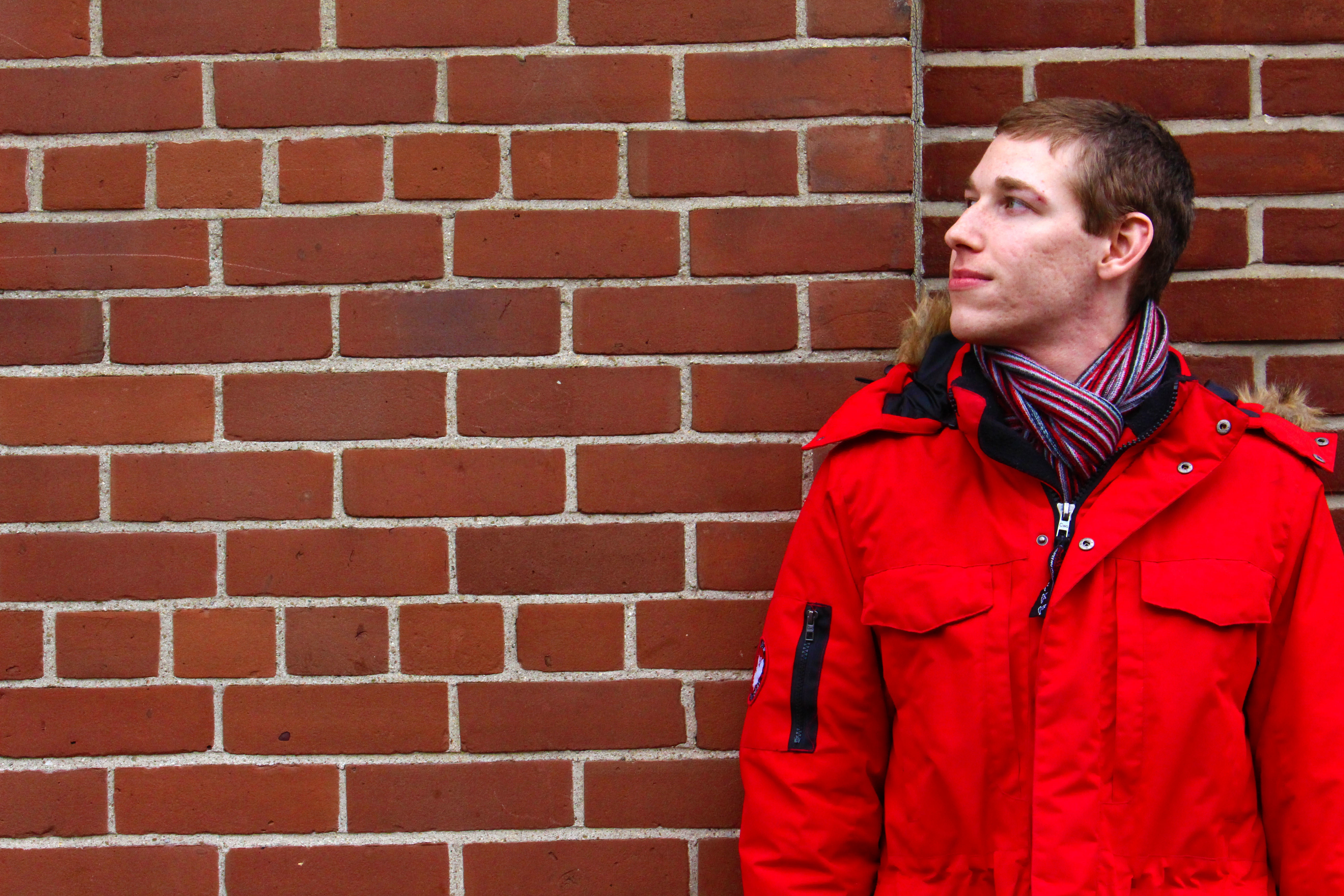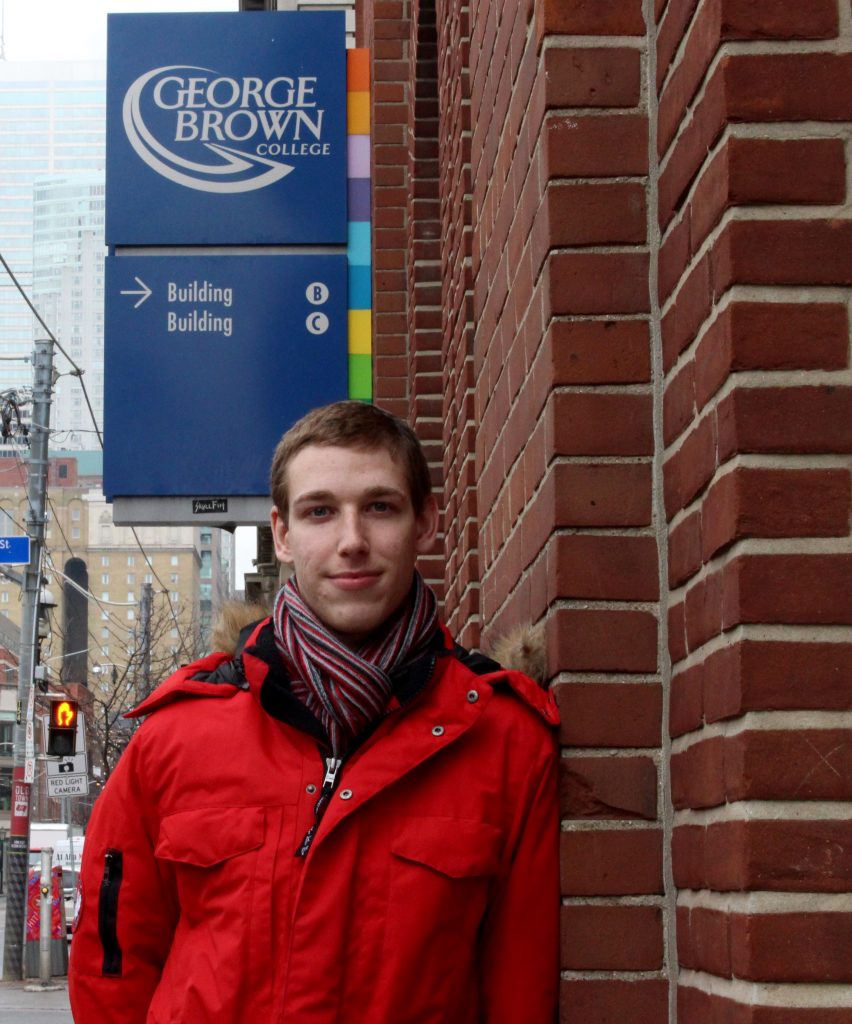This interview was conducted live through an ASL interpreter. Quotes by the interviewee may be subject to errors in translation.
When Aaron Braeden Wolfe-Maxwell came to Ryerson in 2014 for the theatre program, he was expecting a welcoming environment — but says he received the opposite.
At first, his experience was good and he enjoyed his time. In the middle of his second semester, he took a break from the program because of pressing health issues.
When he returned in 2015, that’s when Wolfe-Maxwell noticed how he was being treated by other students and staff. He spent his first semester back taking elective courses, and the second semester taking classes in the theatre program. But he says it was the lack of support he got from that year that pushed him to drop out.
During his first semester back, he says one of his English professors refused to mark his assignments, and wouldn’t accommodate his interpreters. While the chair of the English department disputes that version of events, Wolfe-Maxwell says he was treated in a way that shocked other students.
A constant disappointment with Ryerson’s accommodation only heightened his anxiety. He wasn’t doing well in school and his marks were dropping. But it was his experience with his professor and a certain class of theatre students that served as the tipping point to him deciding leave Ryerson in April 2016.
“I just felt like, you know what? What’s the point of even trying to continue on? So I dropped out,” he said.
At first, his friends and family wanted him to stay at Ryerson and continue with the program. But Wolfe-Maxwell’s decision remained firm.
“I couldn’t continue on, it was a really toxic environment for me. I had to draw the line,” he said.
Wolfe-Maxwell took some time off to figure out his new direction, while working at the Deaf Cultural Centre in Toronto.
He eventually decided to continue his education at George Brown College, where he is currently working towards a BA in Interpretation (American Sign Language).
And he is noticeably much happier. Since his move, he says he hasn’t experienced the same rejection he faced at Ryerson.
“I couldn’t continue on, it was a really toxic environment for me. I had to draw the line.”
There is a much larger deaf community at George Brown, and he is able to use ASL, which is his first language, every day.
Even the school’s accessibility centre has staff that know ASL, unlike Ryerson, where there is only hearing staff at the Academic Accommodation Support (AAS). This was a big source of his frustration with Ryerson, because he could not communicate with anyone at AAS without having an interpreter present.
Christina Halliday, director of Student Learning Support, who oversees AAS, says that staff received basic training in ASL in Spring 2016. They also have devices that allow staff and deaf or hard of hearing students to communicate face to face and in real time. This wasn’t offered when Wolfe-Maxwell was a student at Ryerson.
But perhaps the biggest difference between Ryerson and his new school, he says, is the attitudes among students.
“They’re not scared. They’re not put off, they don’t act awkward. I just feel a really good rapport. At Ryerson, they almost treated me like I was a monster or something. They didn’t even want to go near me, and I don’t get that here at George Brown,” he said.
Wolfe-Maxwell said he believes Ryerson is continuing to ignore its problem. “Ryerson prides themselves, or tries to pride themselves on being diverse and appreciating culture. They tried to put that reputation out, but I look at that and just think that’s bullshit. Because they don’t,” he said.
There needs to be an active effort to change, said Wolfe-Maxwell. Building awareness and understanding deaf culture are good areas to start.
But there’s one explicit change he wants Ryerson to make to ensure deaf students like himself don’t continue to leave. “Listen. They need to actually listen. They have a lot of diverse students there, but it just seems like deaf students, or people with disabilities are just being swept under the rug. They need to include everybody.”



